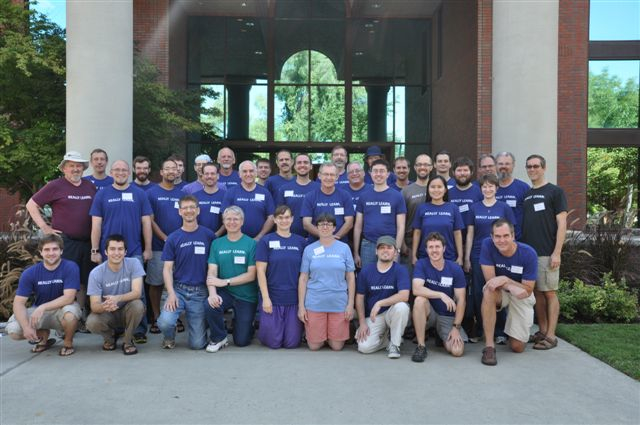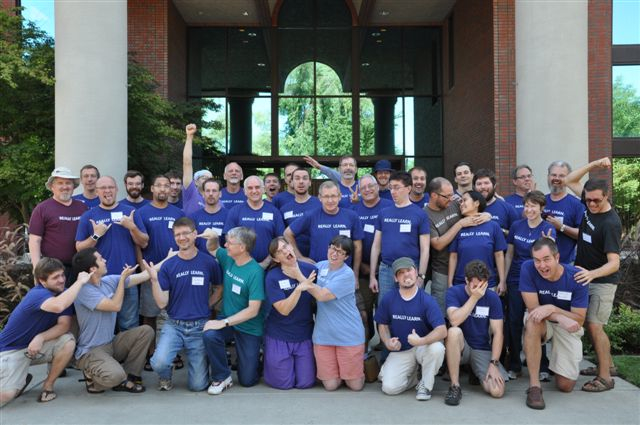It’s hard to believe that already a week has gone by since the end of BLC’s second Koine Greek Fluency Workshop. For those of us involved in the planning and/or the instruction, it was obviously a very busy time for us. I won’t recap all that took place, as a detailed summary has already been written up by one of the participants (see here – it also includes links to a couple more blog posts about the workshop).
Including facilitators, there were about 40 total, with participants coming from around the world (Hong Kong, Malawi, Japan, etc.) as well as Canada and USA. The range of background was actually quite diverse, with some who have only done self-study (mainly using the BLC’s materials) to others who have years of experience teaching Greek. Some even commented on how having this mix among participants, as well as a range of abilities among facilitators, actually helped one better conceptualize how communicative language teaching can be applied with a diversity of student and instructor ability.
In my opinion, and it was echoed by others, it was BLC’s best workshop to date. One of the main reasons it was so successful was the high ratio of facilitators to participants. At times there were 10 facilitators for just under 30 participants. It allowed for break out groups under the leadership of two facilitators with small groups of five to seven people. Let me quote one participant’s words on his end-of-workshop evaluation sheet:
We students worked hard; the teachers harder. I cannot commend enough their enthusiasm, creativity, humor, sensitivity, and energy. All those qualities, moreover, were contagious.
In addition to what took place during the workshop, reports are beginning to trickle back as to how participation in the workshop continues to have an impact on the participants. One comment that is echoed by several is how becoming more fluent in speaking improves reading skills . One put it this way:
I was skeptical, but I came away seeing this improves reading skills. I have been able to read NT fluently for some time, but reading this week it felt more instant, almost, but not quite like English.
This is nice anecdotal evidence for a paper I am to present at ETS and SBL this coming November on what we know makes for effective reading.




I’ve only been studying Koine Greek for a year now, but hope to attend one of your workshops soon. Do you have any penciled in on a calendar for later 2012 or 2013?
The most intense, laughter inducing, engaging, and exhausting learning experience I have ever enjoyed.
Σαῦλος
Dates should be forthcoming very soon for 2013. Thanks for your patience.
[…] am not surprised by this evaluation. I have helped organize two fluency workshops for professors of New Testament Greek that were run by the Biblical Language Center (and am […]
How much skill does one need in Greek prior to attending?
Hi David;
The workshop is geared at instructors, meaning that it is assumed they already have a high level of knowledge about the language. The focus of the workshop is not to increase vocabulary or instruct new grammatical concepts, but building fluency.
Yet we have also discovered that since most instructors do not have spoken fluency, differences in background knowledge makes little difference, if any, in participation ability. If there is room in the workshop, we have allowed students with as little as a year of Greek. The key is to have done much listening prior to coming to the workshop. Past participants, regardless of their background or expertise, all emphasize how they wish they would have done more listening to Koine Greek (Living Koine Greek Volume One Part One and/or the John CD) than what they did.
So I guess the short answer to your question would be many hours (50-100) of listening to Koine Greek with near full-comprehension. That is the most important skill one needs before coming.
I hope that helps. Let me know if you have any further questions.
Brian,
Thank you. That makes sense.
David